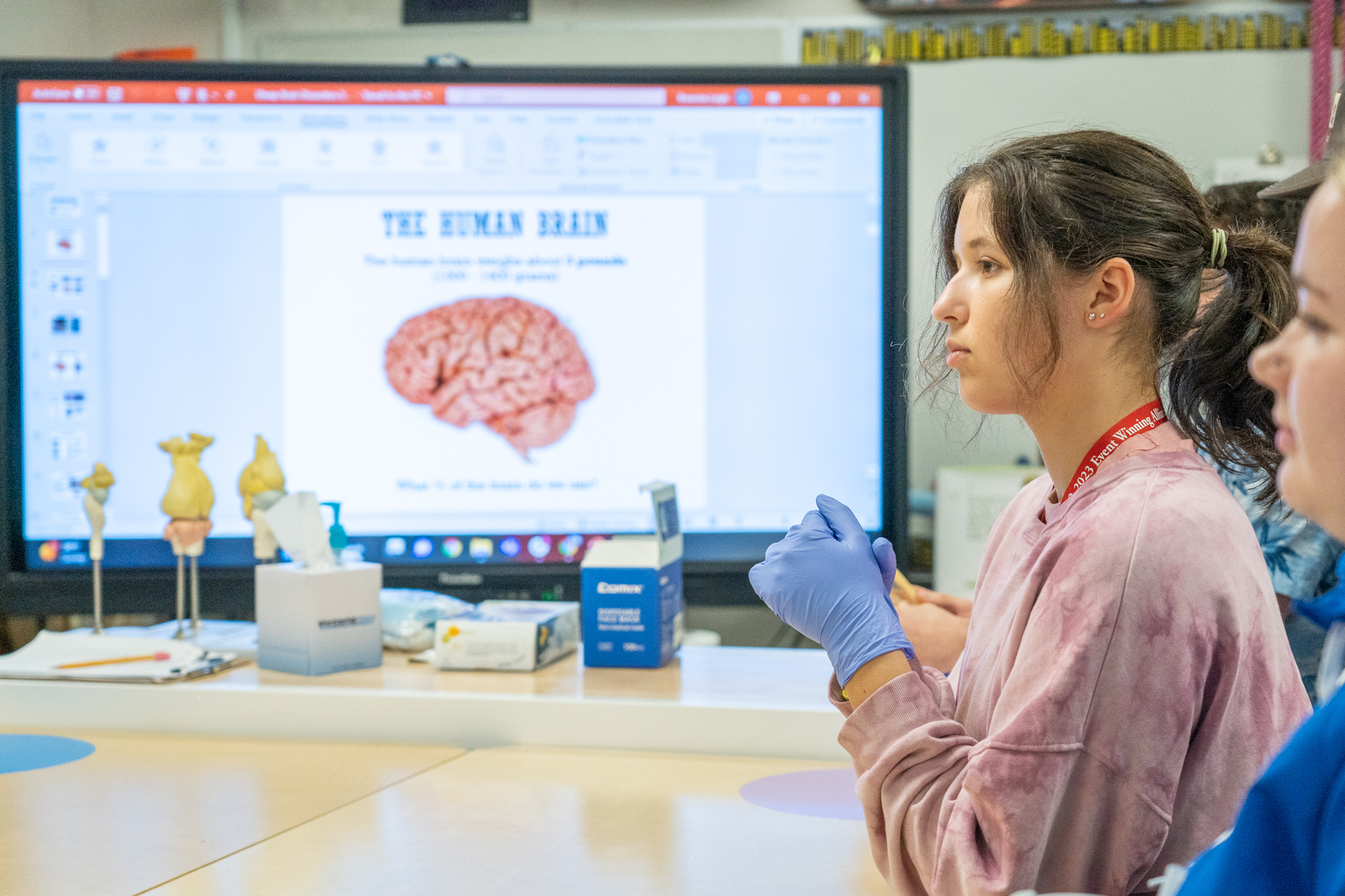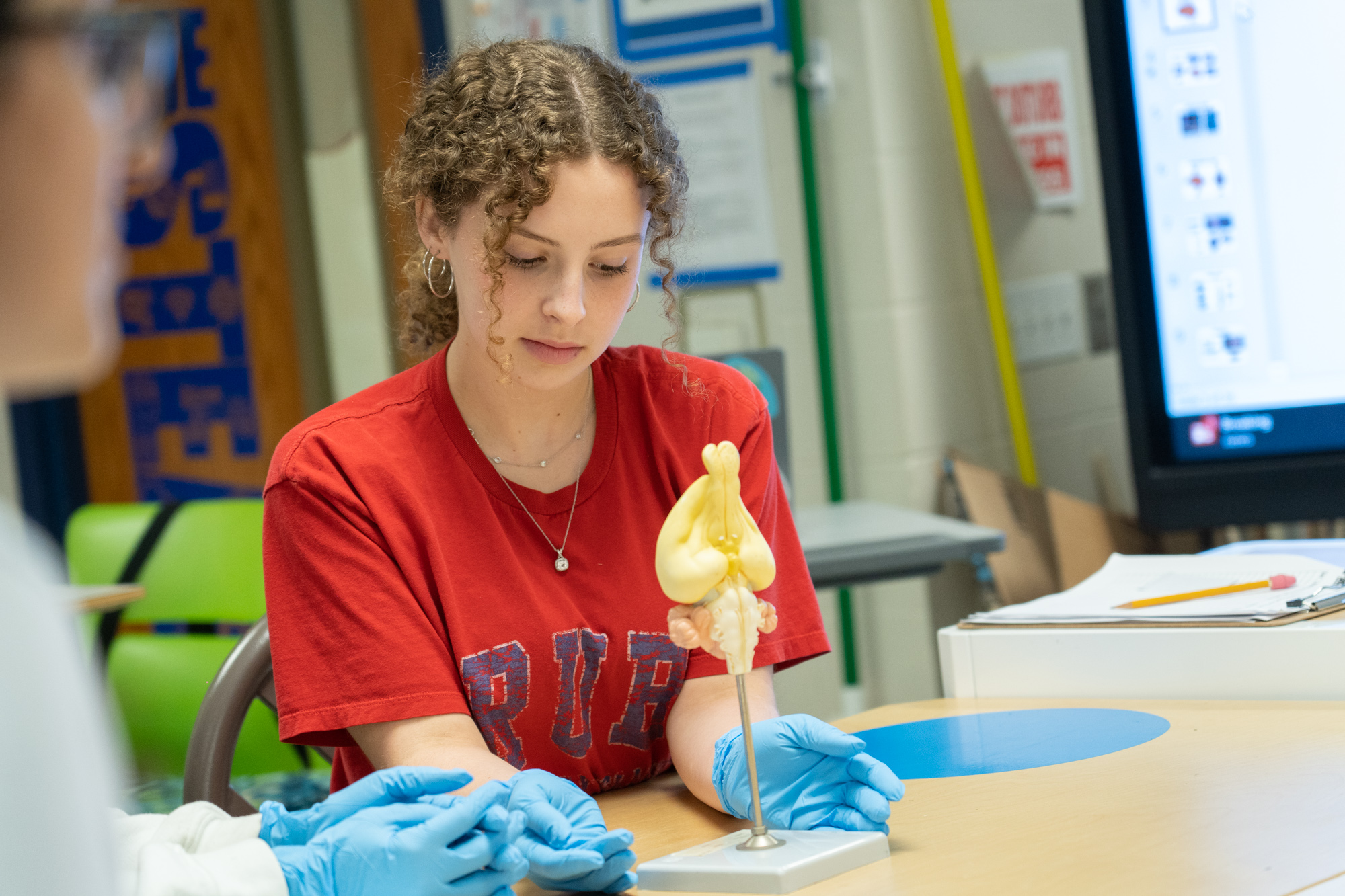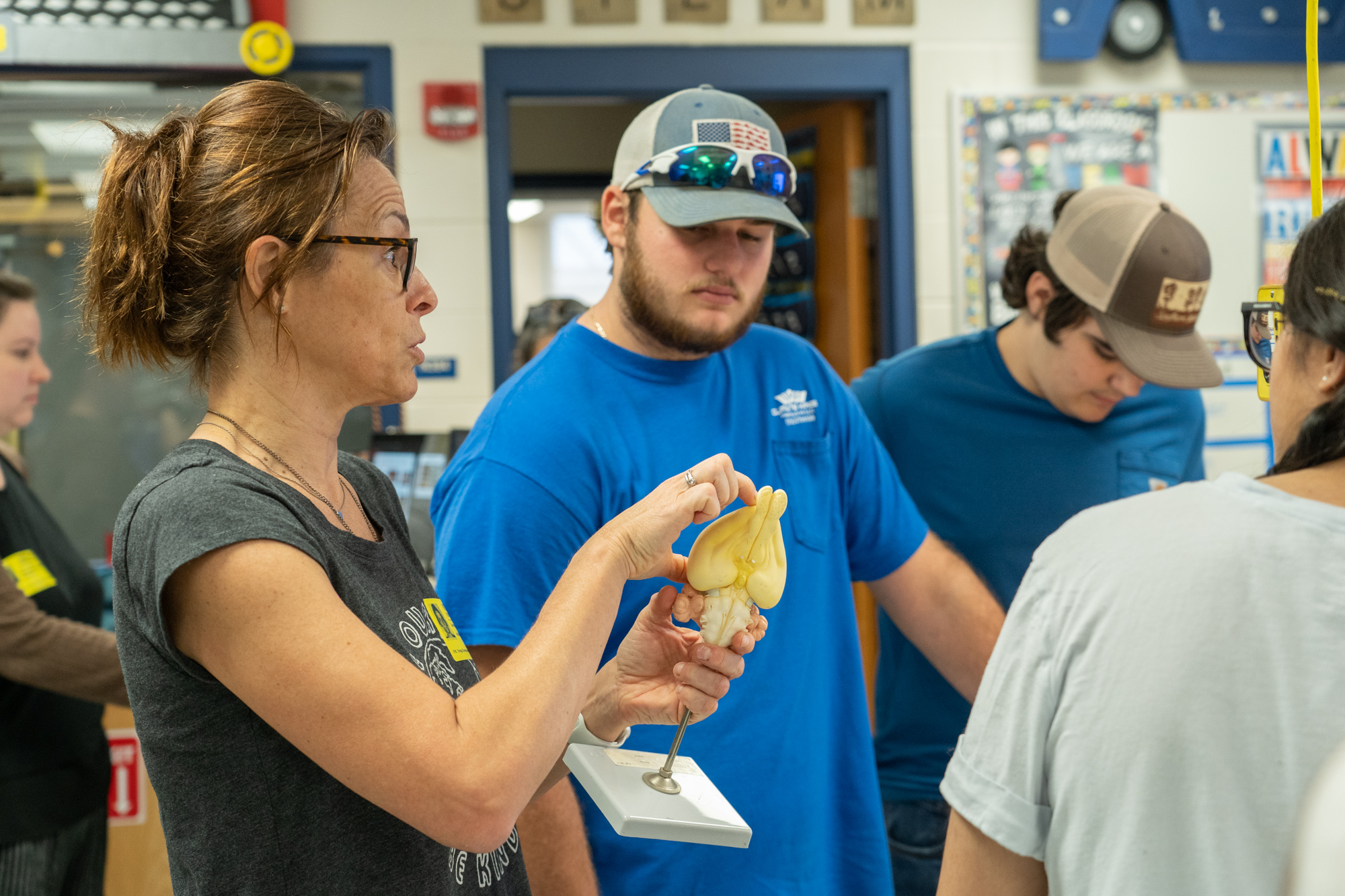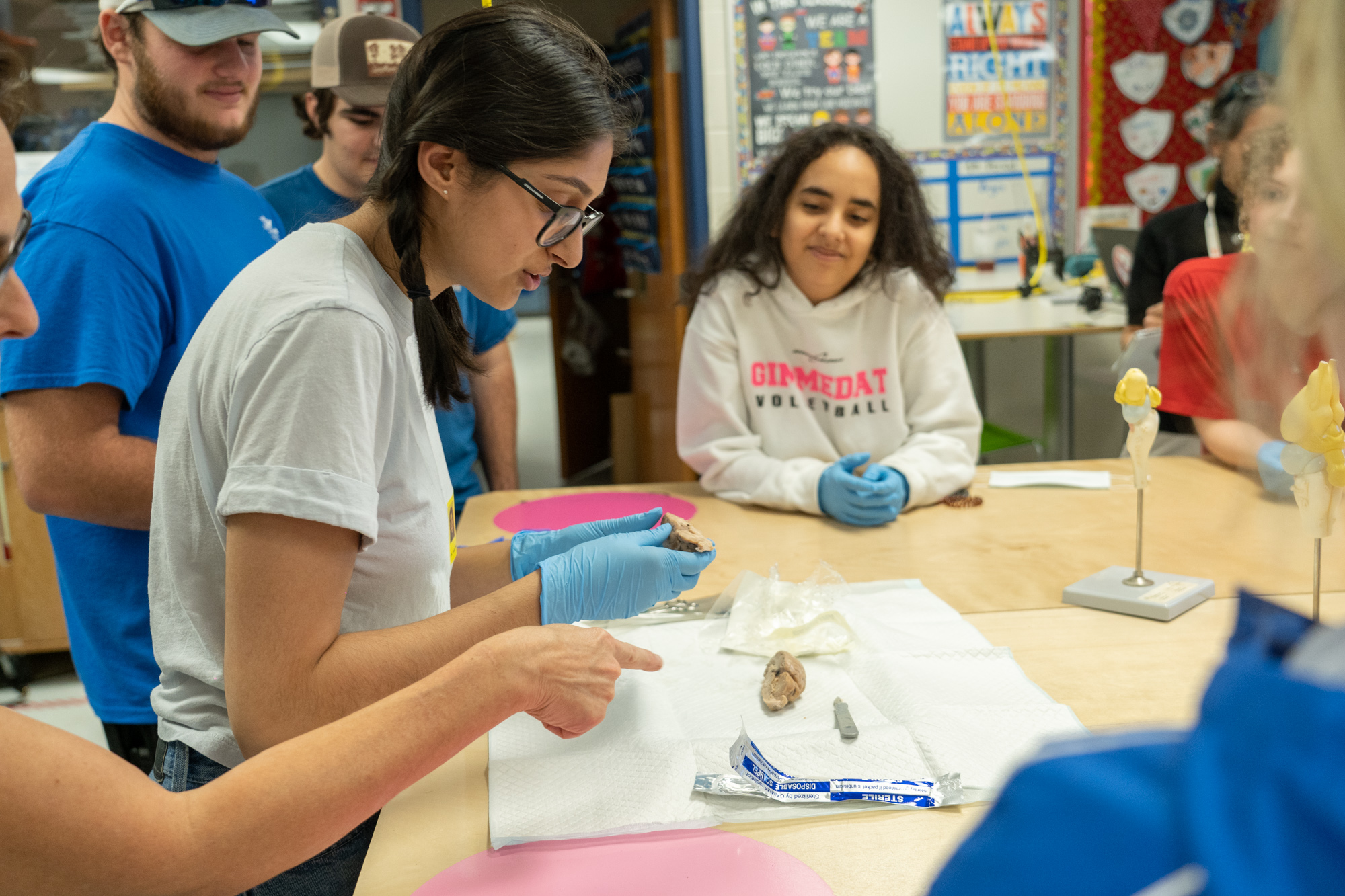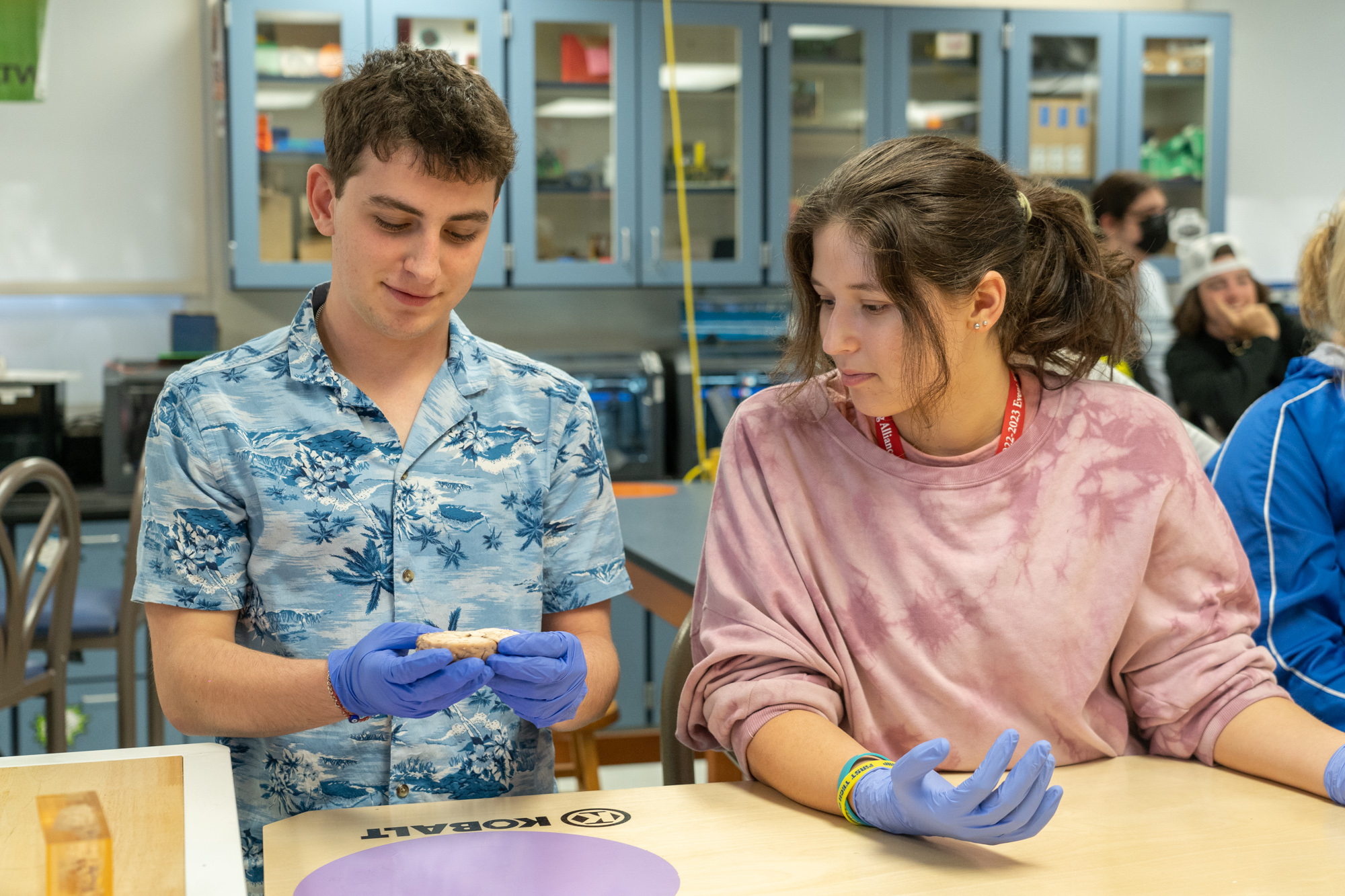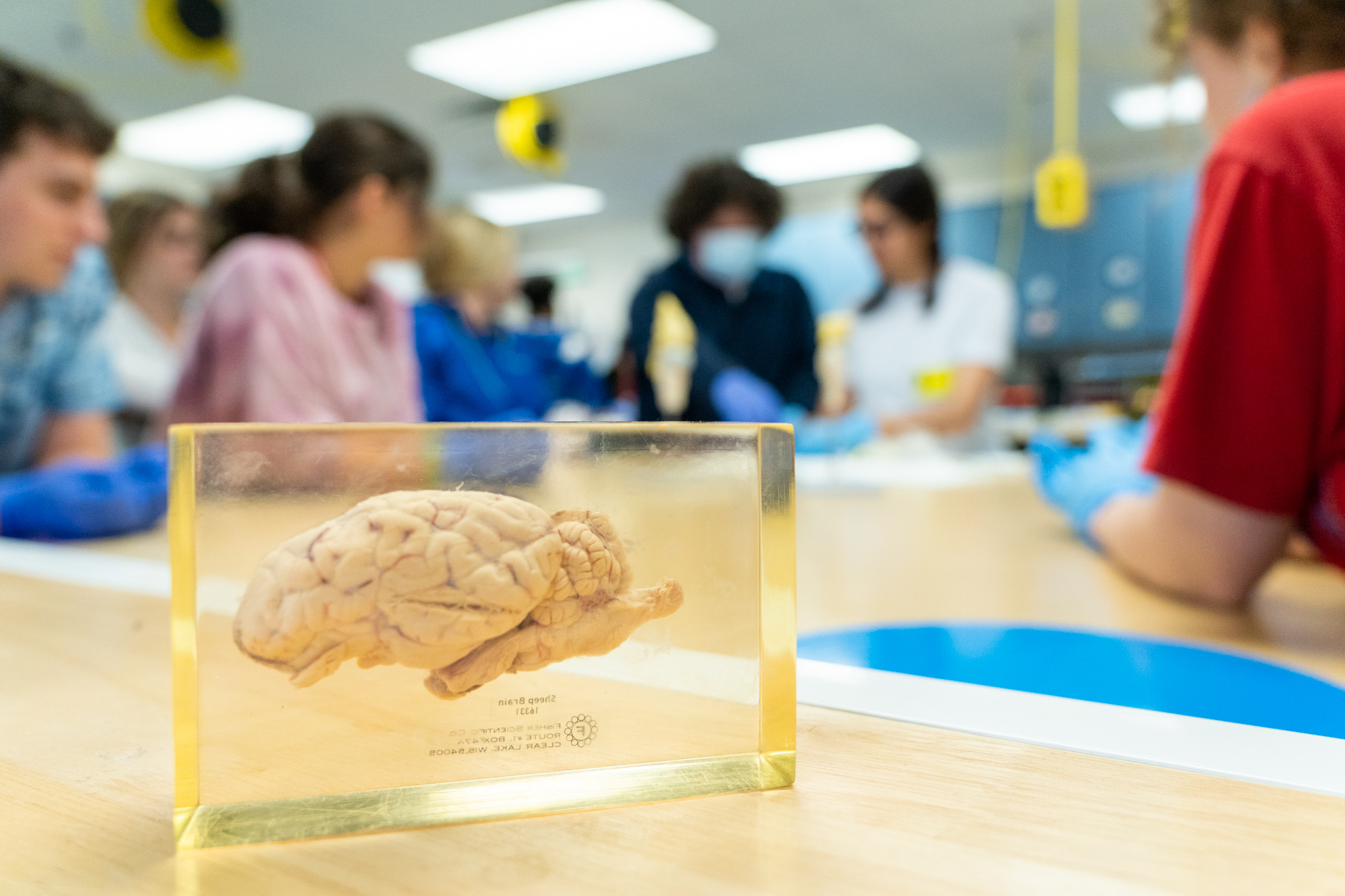By Michelle Jaffee
As high school students at lab tables leaned in to see, two University of Florida neuroscience students each lifted a sheep brain in their palms.
 “Today,” said doctoral student Samantha Smith, chair of UF’s 2023 Brain Awareness Week outreach efforts, “we are going to be doing some comparative neuroanatomy.”
“Today,” said doctoral student Samantha Smith, chair of UF’s 2023 Brain Awareness Week outreach efforts, “we are going to be doing some comparative neuroanatomy.”
The students passed around models of brains of a bird, frog and pigeon, inspecting them for differences, and then, scalpels raised, began the sheep brain dissection.
“The sheep brain is very similar to the human brain,” Smith explained, and studying it helps us to infer how the human brain might be working.
Her presentation in the classroom of engineering teacher Leigh Anne Brewster at P.K. Yonge Developmental Research School was one of 16 last week by UF neuroscience students who deployed into public schools to spread excitement about brain science. For elementary students, interactive demonstrations included a “super-taster” test (if test paper tastes bitter, it means you’re a super taster) and a jelly bean test to teach how smell influences taste.
Organized by the North Central Florida Chapter of the Society for Neuroscience, UF’s Brain Awareness Week efforts this year included visits to Shell Elementary, Meadowbrook Elementary and High Springs Elementary in addition to P.K. Yonge. A total of 35 UF volunteers gave presentations to more than 300 K-12 students.
“I learned a lot about what the different parts of the brain do, and I loved having a smaller model of the brain to see exactly where these parts are,” said P.K. Yonge junior Gabby Zreibi, 15.
For faculty volunteer Gemma Casadesus, Ph.D., a UF professor of pharmacology, the visits allow neuroscience students to step away from molecules and microscopes and remember the big picture.
 “For the undergraduate students, they are able to see how much they’ve grown,” Casadesus said. “For the graduate students, it’s helpful because they can take their research and what they’re learning and explain it to a different population. It serves as a teaching experience for them.”
“For the undergraduate students, they are able to see how much they’ve grown,” Casadesus said. “For the graduate students, it’s helpful because they can take their research and what they’re learning and explain it to a different population. It serves as a teaching experience for them.”
In addition, it’s a great way to get future scientists excited about the brain, she said.
“All of us were amazed at the depth of questions the students asked and the curiosity they had,” Casadesus said. “They were super attentive and super curious, and that was very rewarding to all of us.”
Sponsors of UF’s celebration of Brain Awareness Week this year were: the McKnight Brain Institute, the UF Department of Neuroscience, UF’s Center for Cognitive Aging and Memory Clinical Translational Research and UF’s Brain Injury, Rehabilitation and Neuroresilience Center.
Brain Awareness Week is a global campaign coordinated by the Dana Foundation, held March 13-19 this year. It was held a week early at UF due to spring break.


